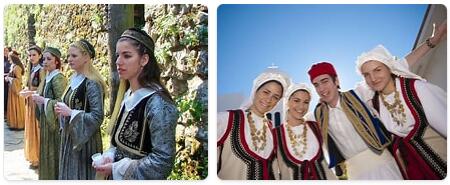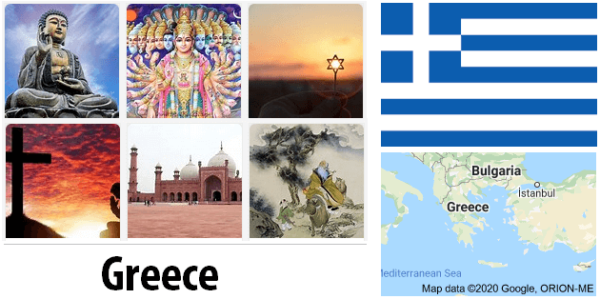In the 5th-3rd, millennium BCE, the Balkan Peninsula was inhabited by sailors who came from Asia. central Greece and Crete. In the 2nd millennium BCE, Indo-European warriors began to extend their influence over the peninsula. They founded Mycenae, Tarant and Argos, conquered Athens, the eastern part of the Peloponnese, invaded Crete and plundered Troy. The economy was based on agriculture and cattle farming. The ruling class of society consisted of the kings, nobles, warriors, and owners of the best lands. They ruled over the peasants, craftsmen, and shepherds.
Around the year 1000 BCE, the Mycenaean civilization was under pressure from the Dorian invasion forces. They had weapons of iron – which the Aegean did not know – mixed with the population and thus providing a unified language for the whole region. The peninsula’s mountainous topography favored the development of city states, called police ruled by a king advised by a council of elders – both belonging to the military aristocracy. The peasants were forced to pay a natural tax. If they were not able to do so, they were made slaves, or sold with their families as slaves. (See Antiquity)
Despite the existence of the various social classes, the Greeks possessed an original conception of the human being. The previous civilizations had regarded man alone as an instrument of the will of the gods and rulers, but in Greek philosophy man assumed the character of individual. The perception of man as a citizen who was part of a police – regardless of property and class affiliation – was one of the most important contributions of Greek culture to history. The Greek city states alternately allied themselves and fought each other. Nevertheless, the Hellenic peoples were considered to have the same nationality because their common religion, language and sportsmanship in the Olympic Games.

In the 8th century BCE, most of the city states came into crisis. This was partly due to the dilution of the rulers’ power which was gradually replaced by magistrates appointed among the nobility, and partly to the lack of fertile land and the increase in population which caused great social tensions. The crisis pushed the Greeks outward, became the start of Greek colonization of the Mediterranean, led to a flourishing trade and the use of Greek as a trade language.
Around 760 BCE, the Greeks established colonies in southern Italy, the Gulf of Naples and in Sicily. They were slowed down in their expansion by the Phoenicians and Etruscans and therefore never fully dominated Sicily or southern Italy, but their cultural influence was of crucial importance for the subsequent cultural evolution of the people of the Italian peninsula.
From the beginning of the colonization, the social and political structure of the Greek police changed. The merchants had benefited from the expansion of the Mediterranean, and were therefore not very prepared to continue to allow the nobility to exercise government power. Together with the peasants, they pushed to be involved in the political decisions. Athens was at that time one of the peninsula’s most thriving cities, and it now embarked on a process that in it 7-6. century BCE led to a gradual democratization of its government structures. In 594, a reformer named Solon took a significant step in that direction by introducing a written law, a court of justice and an assembly of 400 members who were elected based on their wealth and tasked with legislating in the city’s affairs.
According to thesciencetutor, Sparta was the second major city state in the region, and at the same time, it achieved a completely different development. It consolidated an oligarchic state with a solid social and political structure. The Spartan community was militarized due to the military’s decisive importance for the expansion and annexation of the neighboring areas.
In 540, the Persians began their advance in Asia Minor and conquered some Greek cities. These cities carried out a series of rebellions, supported first by Athens and then by Sparta, which culminated in a series of wars – known as the medical wars – that only ended in 449 with the defeat of the Persians. The wars helped consolidate Athens’ power in the region. Through the Delos League, they exercised their economic and political power in the other city states.
The Greek ships played a fundamental role in the wars against the Persians, making the helmsmen, otherwise belonging to the lowest strata of Athenian society, indispensable for the defense of Athens. They used it to demand improvements in their living conditions and greater political rights. After a period when the Athenian oligarchy had regained its political power, in 508 the reformer Kleistenes expanded the number of members of the town assembly to 500 and made it the city’s most important government body. Attendance at the assembly was made possible for all free citizens – men only – in the city. Democracy in Athens, however, could only be exploited by a small minority who had the opportunity to drastically increase their wealth through the use of the huge number of slaves. This is why historians often characterize it as a slave democracy.folk ; krati, gr. for board. See Democracy)
